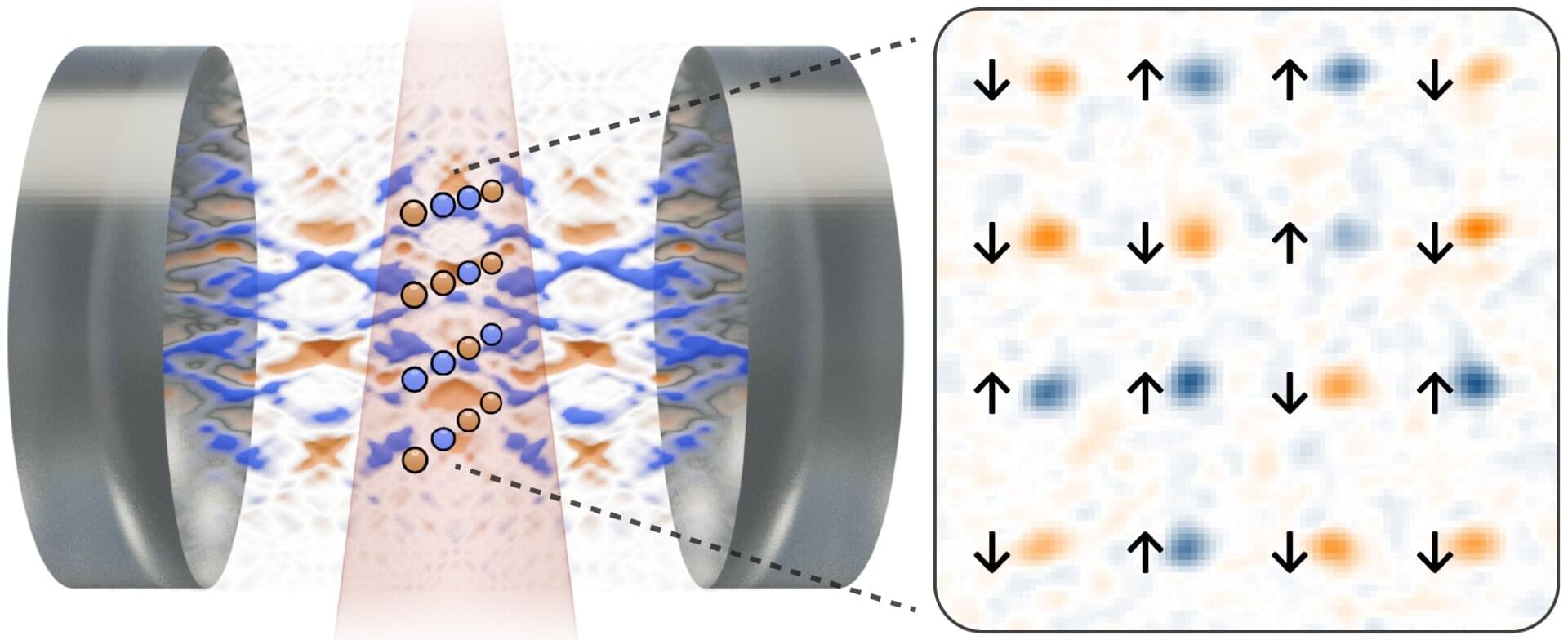Spin glasses are physical systems in which the small magnetic moments of particles (i.e., spins) interact with each other in a random way. These random interactions between spins make it impossible for all spins to satisfy their preferred alignments; a condition known as ‘frustration.
Researchers at Stanford University recently realized a new type of spin glass, namely a driven-dissipative Ising spin glass in a cavity quantum electrodynamics (QED) experimental setup. Their paper, published in Physical Review Letters, is the result of over a decade of studies focusing on creating spin glasses with cavity QED.
“Spin glasses are a general model for complex systems, and specifically for neural networks—spins serve as neurons connected by their mutually frustrating interactions,” Benjamin Lev, senior author of the paper, told Phys.org.
